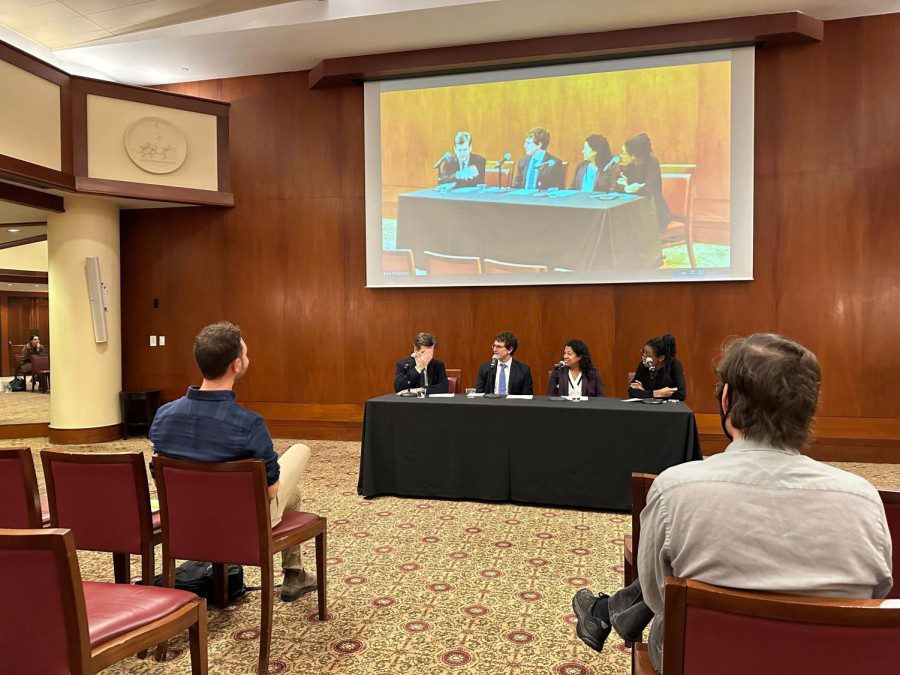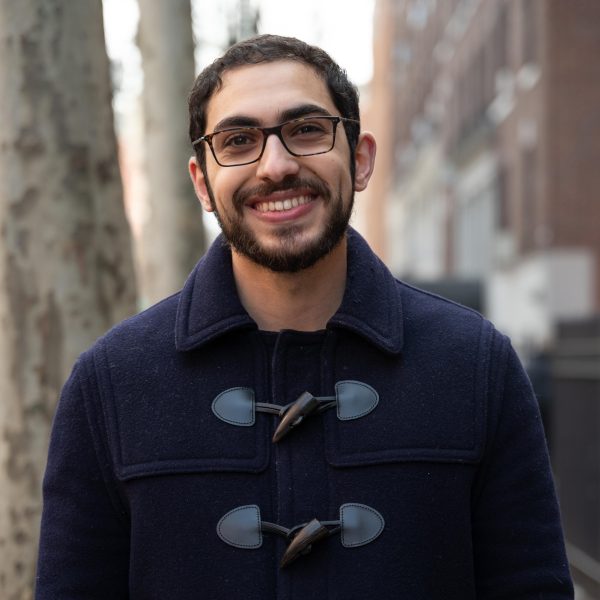NYU profs, local politicians address sudden resignation of chief NY judge
The Center on Race, Inequality, and the Law at the NYU School of Law hosted a teach-in about the vacancy of the New York Court of Appeals chief judge position at D’Agostino Hall on Wednesday, Nov. 2.
(From left to right) Brad Hoylman, N.Y. state senator; Noah Rosenblum, NYU assistant law professor; Alice Fontier, managing director of the Neighborhood Defender Services of Harlem; and Tasleemah Lawal, fellow at the NYU Center on Race, Inequality and the Law, at a panel on Nov. 3. (Yezen Saadah for WSN)
November 4, 2022
An NYU School of Law panel discussed solutions to address the current vacancy of the chief justice of the highest court in New York on Wednesday, Nov. 2. The person who fills the position will affect the political balance of decisions made by the New York Court of Appeals, which has been divided on its interpretation of state laws in recent years.
State senator Brad Hoylman joined a panel of experts at D’Agostino Hall to discuss the vacancy, which was created after Janet DiFiore resigned on Aug. 31.
“This campaign is part of that to push us to make sure that we do our due diligence, and that these candidates are not just good lawyers, or even judges, but that they represent the values and the backgrounds of New Yorkers at large,” Hoylman said.
NYU Law assistant professor Noah Rosenblum, who spoke on the panel, addressed the vacancy’s significance and the responsibilities of the chief judge. The chief judge, who serves a 14-year term, is the head of the New York court system. They control the system’s policies and the appointment of a chief administrative judge.
DiFiore, who only served for six years, was under investigation by the New York State Commission on Judicial Conduct at the time of her resignation. She allegedly asked a hearing officer to punish a defendant who had threatened to publicize an article about DiFiore’s alleged affair. Anthony Cannataro has been appointed as acting chief judge until a permanent replacement is found.
“We’re having this event to pull these otherwise procedural issues into the spotlight — to begin demanding some democratic accountability,” Tasleemah Lawal, a fellow at the center, said. “The person who’s chosen to lead our courts will affect all of our lives, and we’re here at this event to center how there can be nothing about us, without us.”
The panel also addressed the current bid to find a new chief justice. Hoylman, who chairs the New York State Senate Judiciary Committee, estimated that the committee would send a shortlist of potential candidates to Gov. Kathy Hochul by Thanksgiving. Hochul will then choose a nominee. The State Senate will then need to approve the appointment.
Rosenblum emphasized that diversity and lived experiences should be taken into account in the selection process, pointing specifically to judges’ dealings with cases involving marginalized and working class New York citizens. He told WSN that NYU Law has many initiatives that focus on bringing justice to the surrounding community, and that its mission — as well as NYU students and faculty — will be impacted by the chief justice’s selection.
“One of our mottos at NYU is that we’re a private school in the public interest,” Rosenblum said. “NYU has always been committed to public service and has many initiatives that are focused on New York state and New York City, and making them more just, more liveable and better for New Yorkers.”
Contact Yezen Saadah at [email protected].

























































































































































